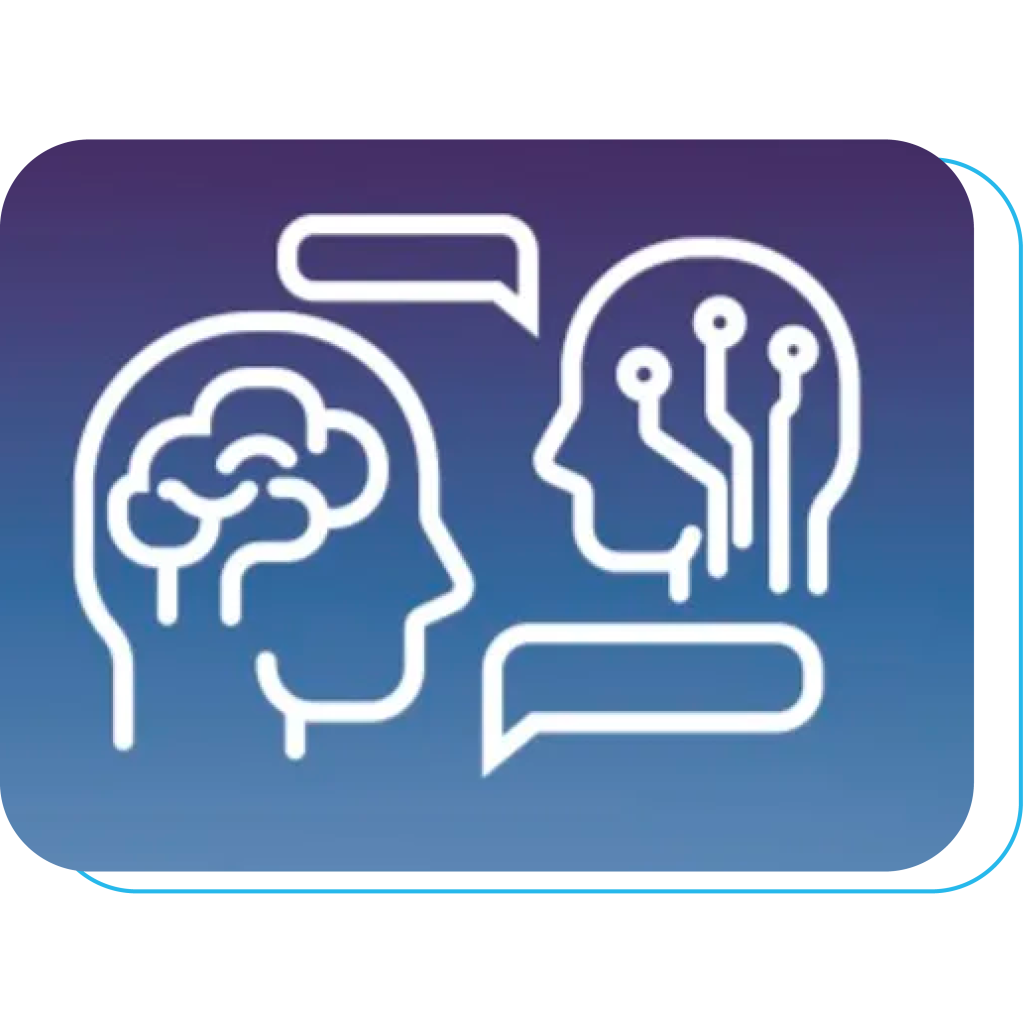What if we could provide counsellors and therapists with comprehensive insights about their clients even before their first meeting? Imagine if we could empower counsellors to deliver exceptional standards of care from the very first visit. In the face of limited resources in mental health care, artificial intelligence (AI) has the potential to accelerate counsellors in training to the field, allowing them to make meaningful contributions earlier in their careers.
What if there were an intelligent assistant powered by AI that could effectively complement psychotherapists and counsellors, enhancing their abilities to create tailored interventions and ensure seamless continuity of care?
Before we address these questions, let’s first examine the initial stages of the counselling process. Counsellors initiate the process by establishing rapport and building trust with their clients. This foundation creates a safe environment for individuals to openly share their emotions and feelings. It is through this collaborative relationship that counsellors can develop personalised treatment plans. However, how long does this process typically take?
Drawing from my own personal experience with counsellors during a suspected period of depression, I can relate to the long journey. It involved enduring numerous hours of scientific questionnaires that delved into the past, relationships, and my personality. Additionally, I attended multiple sessions aimed at learning coping skills. Undoubtedly, this comprehensive approach was beneficial. It provided validation for my feelings, instilled positivity, and ultimately alleviated the burden that weighed heavily on my chest. While the process was indeed lengthy, it proved to be a rewarding and transformative experience.
Although counselling practices have existed for decades, from my experience, there is still a notable disparity when it comes to comparing them to the treatment of physical health conditions. Counsellors and healthcare organisations invest thousands of hours in counselling. The question arises: how can we harness the collective experiences from around the world to benefit society? Is it possible to digitally compile all this data, train models using software, and provide valuable insights to counsellors as they prepare their clients’ treatment plans?
Furthermore, how can we enhance the counselling experience for both clients and therapists? Can artificial intelligence, lend support to counsellors in various areas such as:
Enhancing Client Understanding in Counselling
Gaining a deeper understanding of clients’ personalities can significantly benefit counsellors in their practice. Personality traits offer valuable insights into clients’ behaviours, interpersonal dynamics, and more. For instance, an extroverted client may respond well to interactive and experiential interventions. By having insights into a person’s strengths and weaknesses beforehand, counsellors can provide more effective coping mechanisms tailored to their clients’ personalities.
An important question for counsellors:
What if you could know that the client has high neuroticism even before you see them? How would this knowledge empower you to better prepare for the session?
Mood and Relationships
Understanding the client’s emotions and the duration of their experience with certain conditions, such as feelings of dread, happiness, or other emotions, is crucial in the counselling process. However, delving deeper into the factors that contribute to their emotional state, such as their relationships with family, school, work, or peers/friends, holds significant importance. By having this information in advance, as a counsellor, you can initiate the first session with meaningful and in-depth questions, establishing a strong foundation for further exploration.
When you meet the client during their initial session, armed with this knowledge, you can ask targeted questions that aim to uncover the underlying causes of their emotional distress. For instance:
- Why do you feel dreadful?
- What specific incident triggered these feelings?
- When did it occur?
By asking these questions, you can demonstrate your attentiveness, empathy, and genuine interest in their well-being. This approach helps build credibility and rapport right from the start, establishing a therapeutic connection that fosters trust and comfort. Starting the counselling journey in such a manner sets the stage for effective care and support.
Personalised Care
Having a comprehensive understanding of the client’s experiences allows you, as the counsellor, to prepare for the first session and develop an initial plan that can be adjusted as you delve deeper into the therapeutic process. While subjective assessments, such as recognising the client’s emotions, personality, and trends, are important, it is equally crucial to incorporate scientific assessments and evidence-based counselling/therapy that provide objective insights.
Artificial Intelligence can play a vital role in gathering both subjective and objective evidence through natural conversations with the client, using scientific tools, and prompting non-invasively. Imagine integrating wearables to monitor physical well-being and sleeping habits, which can reveal valuable insights such as high stress levels or potential symptoms of sleep apnea. This is just one example of how counsellors can leverage AI to develop more effective intervention plans for their clients.
Now, imagine the convenience of being able to ask the AI, “Hey Zo, John (client name) is coming in tomorrow for his fourth session. How has he been doing?”
Continuity of Care
Have you ever experienced the frustration of clients not consistently practising the skills you’ve taught them, leading to the need to start from scratch? Encouraging clients to persistently follow treatment plans, practice skills, and build self-awareness is crucial in preventing relapse. Additionally, empowering clients to track and monitor their progress, including stress levels and mood, can motivate them and facilitate necessary lifestyle modifications.
Imagine if AI could automate these tasks for you!
- Reminding your clients to reflect and journal daily,
- Reinforcing the importance of setting SMART goals and facilitating regular check-ins in a non-intrusive manner,
- Alerts you of any warnings of potential relapses.
Free up Time
As you have read this far, you might have started to sense that the healthcare system is saving a significant amount of time and resources. With the help of AI and the potential benefits as aforementioned, we can now serve more clients within our counselling hours and provide assistance to a greater number of people in need.
AI plays a vital role in enhancing the quality of care by minimising unproductive sessions. Moreover, it assists in evaluating and prioritising which clients to attend to first, helping counsellors maximise their time and ensuring that those requiring immediate attention receive the necessary support.
Closing Thoughts
Artificial intelligence technologies, when combined with the expertise and compassion of mental health professionals, have the potential to revolutionise the field. These technologies offer immediate and round-the-clock support, transcending geographical barriers and delivering evidence-based interventions to clients in need. However, it is important to acknowledge that the integration of AI in mental health raises ethical considerations and the need for robust governance. As we explore the potential of AI in this domain, we must ensure the protection of client privacy, maintain confidentiality and autonomy, and prioritise the well-being of clients.
We invite like-minded professionals and companies to join us in this revolution to make a difference and have a positive impact on mental health care. For further information or collaboration opportunities, please reach out to us at hello@zoala.co or follow us here






